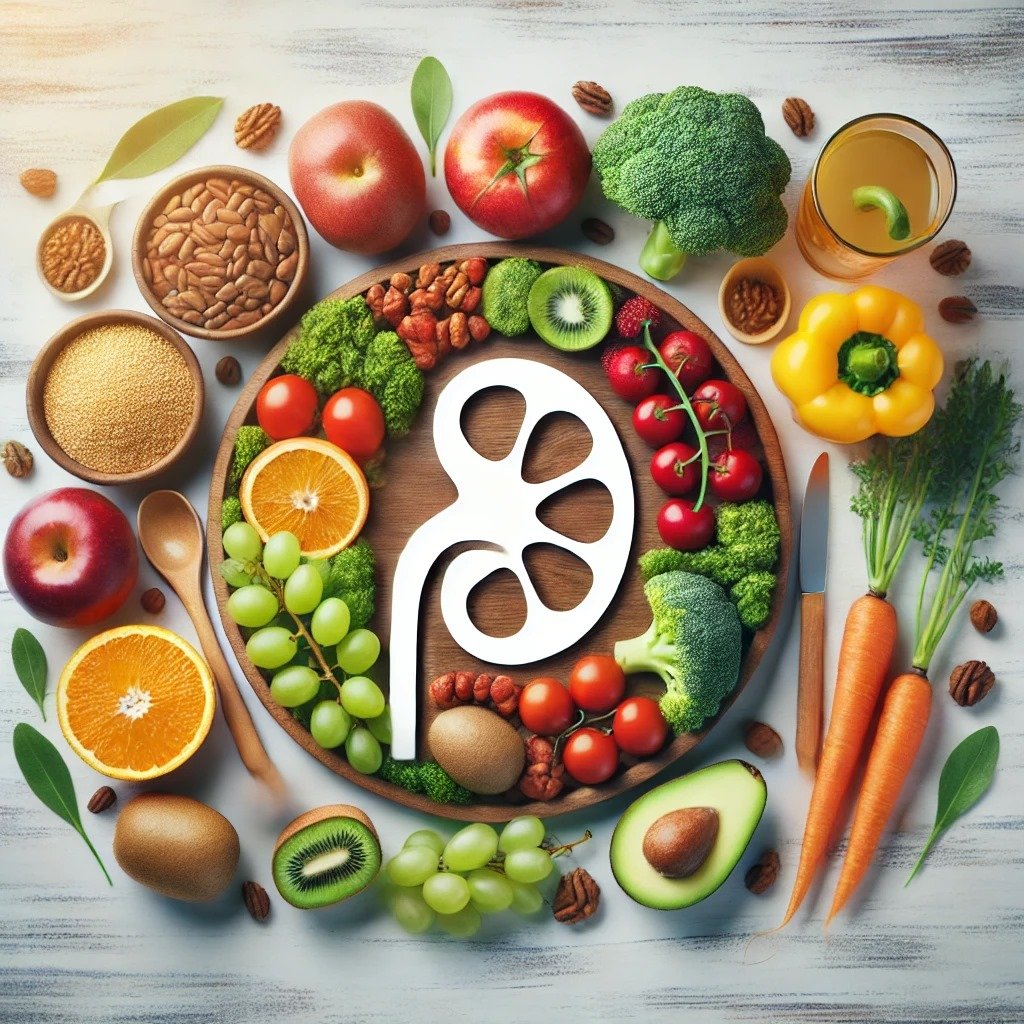Kidney disease:-The kidney is a vital organ in the human body, playing a crucial role in filtering blood, removing toxins, and maintaining the balance of fluids and electrolytes. Despite their importance, kidneys are often overlooked until a problem arises.
Kidney-related issues can range from mild discomfort to life-threatening conditions. This article will explore various kidney problems, their causes, symptoms, and remedies, along with tips for maintaining healthy kidneys.

Common Kidney Problems
1. Kidney Stones:
Kidney stones are solid masses made of crystals that develop in the kidneys. They can vary in size and may cause severe pain when passing through the urinary tract. Small stones often pass on their own, but larger ones may require medical intervention.
2. Chronic Kidney Disease (CKD):
CKD is a condition where the kidneys gradually lose their ability to function properly. It’s often associated with high blood pressure, diabetes, and other chronic conditions. CKD can progress to end-stage kidney disease (ESKD), where the kidneys fail completely.
3. Acute Kidney Injury (AKI):
AKI is a sudden and severe reduction in kidney function, usually due to injury, infection, or decreased blood flow to the kidneys. It can be a temporary condition but may lead to long-term damage if not treated promptly.
4. Kidney Infections (Pyelonephritis):
This is a type of urinary tract infection (UTI) that affects one or both kidneys. It can cause pain, fever, and nausea, and may lead to kidney damage if left untreated.
5. Polycystic Kidney Disease (PKD):
PKD is a genetic disorder that causes numerous cysts to form in the kidneys, leading to enlarged kidneys and impaired function. It can result in kidney failure and is one of the most common inherited kidney disorders.
6. Nephrotic Syndrome:
Nephrotic syndrome is a condition characterized by high levels of protein in the urine, low levels of protein in the blood, and swelling in various parts of the body. It is often a result of damage to the kidneys’ filtering units (glomeruli).
Causes of Kidney disease Problems
1. Unhealthy Diet:
A diet high in sodium, sugar, and unhealthy fats can put a strain on the kidneys. Excessive consumption of protein can also lead to kidney stones.
2. Dehydration:
Not drinking enough water can lead to kidney stones and other kidney problems, as the kidneys need sufficient fluid to flush out toxins.
3. High Blood Pressure:
Hypertension damages the blood vessels in the kidneys, reducing their ability to function effectively.
4. Diabetes:
High blood sugar levels in diabetic patients can damage the blood vessels in the kidneys, leading to diabetic nephropathy, a leading cause of CKD.
5. Overuse of Medications:
Excessive use of over-the-counter pain relievers, such as NSAIDs, can damage the kidneys. Long-term use of certain antibiotics and other medications can also have harmful effects.
6. Genetic Factors:
Conditions like PKD are inherited and can lead to kidney problems regardless of lifestyle.
7. Infections:
Recurrent urinary tract infections (UTIs) can ascend to the kidneys, causing infections that may damage the kidneys over time.
8. Obesity:
Being overweight increases the risk of diabetes and hypertension, both of which are major risk factors for kidney disease.
Symptoms of Kidney Problems
1. Changes in Urination:
This may include increased or decreased urine output, dark or bloody urine, and pain or burning during urination.
2. Swelling:
Puffiness around the eyes, swollen ankles, and swollen hands are signs of fluid retention due to impaired kidney function.
3. Fatigue:
Feeling unusually tired or weak without any clear reason may be a sign of kidney problems, as the kidneys are responsible for producing a hormone that regulates red blood cell production.
4. Itching and Dry Skin:
A buildup of waste products in the blood due to kidney failure can cause severe itching and dry skin.
5. Nausea and Vomiting:
As toxins accumulate in the bloodstream, they can lead to digestive issues like nausea and vomiting.
6. Shortness of Breath:
Fluid buildup in the lungs or anemia, both common in kidney disease, can cause difficulty breathing.
Preventive Measures and Remedies for Kidney Problems
1. Maintain a Balanced Diet:
Eating a diet rich in fruits, vegetables, and whole grains, while limiting salt, sugar, and unhealthy fats, can help maintain kidney health. It’s also essential to balance protein intake to avoid putting extra stress on the kidneys.
2. Stay Hydrated:
Drinking plenty of water helps the kidneys flush out toxins and prevents kidney stones. Aim for at least 8-10 glasses of water a day unless advised otherwise by a healthcare provider.
3. Exercise Regularly:
Regular physical activity helps control weight, blood pressure, and blood sugar levels, all of which are crucial for kidney health.
4. Monitor Blood Pressure and Blood Sugar:
Keeping blood pressure and blood sugar levels under control is vital for preventing kidney damage. Regular check-ups and medications, if prescribed, should be followed diligently.
5. Avoid Smoking and Excessive Alcohol Consumption:
Smoking and heavy drinking can damage the kidneys and worsen existing kidney problems. Quitting smoking and reducing alcohol intake can significantly improve kidney health.
6. Be Cautious with Medications:
Use over-the-counter pain relievers and other medications as directed and avoid long-term use without consulting a healthcare professional. Always discuss potential side effects on the kidneys with your doctor.
7. Regular Health Screenings:
Regular check-ups, including blood and urine tests, can help detect kidney problems early, allowing for timely treatment and management.
READ MORE- KIDNEY PAIN
Home Remedies for Kidney Care
1. Lemon Water:
Drinking lemon water can help prevent kidney stones by increasing citrate levels in the urine, which prevents the formation of stones.
2. Apple Cider Vinegar:
Apple cider vinegar may help prevent kidney stones and improve overall kidney function. Dilute it in water and consume it regularly.
3. Basil (Tulsi):
Basil leaves are known to promote kidney health. Drinking basil tea or juice can help cleanse the kidneys.
4. Cranberry Juice:
Cranberry juice is effective in preventing urinary tract infections, which can ascend to the kidneys and cause infections.
5. Parsley Juice:
Parsley is a natural diuretic that helps flush out toxins from the kidneys. Drinking parsley juice can help maintain Kidney disease health.
6. Ginger Tea:
Ginger has anti-inflammatory properties that can help reduce kidney inflammation and improve kidney function.
Taking Care of Your Kidneys
Taking care of your kidneys is crucial for overall health and well-being. This involves adopting a healthy lifestyle, staying hydrated, and being aware of the signs and symptoms of kidney problems. If you experience any unusual symptoms, seek medical advice promptly. Regular health check-ups, a balanced diet, and avoiding harmful habits like smoking and excessive alcohol consumption are key to maintaining healthy kidneys.
Conclusion
The kidneys are vital organs that perform essential functions in the body. By understanding the potential problems that can affect the kidneys and taking preventive measures, you can reduce the risk of kidney disease. Early detection and management of kidney problems are crucial for maintaining kidney health and overall well-being. Remember, your kidneys are irreplaceable, so take care of them with a healthy lifestyle and regular medical care.
